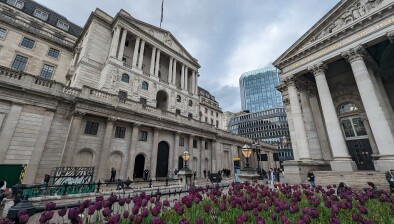BoE ordered to find £50bn of missing bank notes

The Bank of England (BoE) has been asked to find out who is in possession of £50 billion of missing sterling banknotes.
The number of notes in circulation reached a record high of 4.4bn in July this year with a face value of £76.5bn. Of that amount, the BoE estimates that as much as 24% is used for cash transactions and another 5% is held as savings.
MPs on the public accounts committee have said that the BoE’s estimations have meant that over £50bn of cash is unaccounted for. A substantial amount of that money may be in the shadow economy, which ranges from cash-in-hand traders to criminal trading.
In 2017, the Institute for Economics Affairs estimated that the shadow economy was worth about £200bn, suggesting that the government may be missing out on tax revenues of about £80bn, The Times reports.
In their report on access to cash, the MPs said: “These notes may be being used overseas or held in the UK as unreported household savings or for use in the shadow economy. The Bank does not have any real understanding of what these notes are being used for.
“There are implications for public policy and the public purse if a material proportion of the large volume of banknotes whose whereabouts or use are unknown are being used for illegal purposes.”
A BoE spokesman said: “It is the responsibility of the Bank to meet public demand for banknotes. The Bank has always met that demand and will continue to do so. Members of the public do not have to explain to the Bank why they wish to hold banknotes. This means that banknotes are not missing.”
BoE officials told MPs during questioning that while the volume of cash transactions had been dropping for years the amount of cash in circulation was rising. Bank officials claimed that low inflation and interest rates had made the cost of hoarding cash less expensive compared with putting it in the bank.
MPs said that the BoE needed “to be much more curious about what is driving the increase”. During the first lockdown announced in March, the bank estimated that UK households stockpiled between 8 and 13% more cash.
At the same time, cash was used in six out of ten transactions a decade ago. Last year it was used in less than three in ten and there had been a huge decline in cash usage during the pandemic as retailers switched to card payments.
The public accounts committee’s report warned that many communities were losing their access to cash and regulators were not effectively dealing with the issue.





